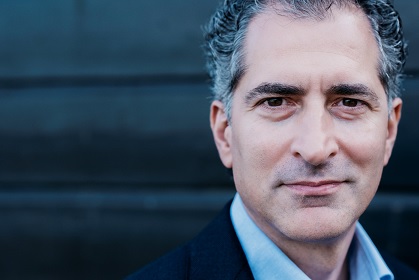When Employees Commit Psychological Breach of Contract

Author: Adnan Basaran | Image: Gregor Servais | 31-08-2021
Now, Boers is not just anybody: he has coached hundreds of top police talents throughout the country over the past 13 years, as part of the organisation’s leadership programme. In other words: if Boers is not afraid to make such a statement, there is not only smoke but also fire. And this is something that doesn’t surprise me personally: when I, with my own bicultural background, applied for a job in the Enschede police force 31 years ago, I soon heard stories about how Turkish colleagues were treated in that organisation. That was a reason for me to withdraw my application, because I did not want to work in a culture like that. I fear that was the only right decision, because almost everyone from the Turkish community who did decide to join soon left the police force again.
The annoying thing is that the Dutch police organisation scores above average on this point, but it is by no means unique. Wherever bicultural talent is indiscriminately engaged in a non-inclusive context, there is a lack of understanding, discrimination, harassment and all kinds of other dysfunctional behaviour. Wherever the management fails to systematically pick up the signals about this, a toxic culture of mistrust is created. And wherever the top avoids any conflict about this, this top is eventually ‘out of touch’ with the rest of the organisation.
There is no quick fix; a long-term approach and hard decisions are needed
For those who believe that things are not all that bad − at least in their own organisation − let me provide an additional insight, because, even if the consequences of a non-inclusive context may not be as evident everywhere as in the police organisation, there may well be a more ‘disguised’ effect in a great many other organisations. The most striking phenomenon is what I call ‘clique formation’: in a culture of mistrust, people look for like-minded people.
How often do you see a horizontal disconnection in organisations between the ‘veterans’ and the ‘newcomers’, the ‘insiders’ and the ‘outsiders’ or between the ‘members of the old boys network’ and people with a bicultural background (who, by the way, tend to hang together as well)? Only few organisations completely escape the dynamics of ‘us-against-them’ and an internal culture of covering each other’s backs − at the top, but also in the layers below. These are all dynamics that are averse to coherence and, in the long term, lead to a downward spiral towards a low performing organisation – a trend that is beginning to seriously affect the police organisation. My impression is that more and more officers are, to use the words of management scientist Henri Mintzberg, ‘committing psychological breach of contract’ with the police organisation: they still meet the formal requirements of their employment contract, but their commitment has disappeared.
In my experience, many managers/leaders do not know how to solve this type of cultural problem. What doesn't help here is the ‘natural’ tendency of managers/leaders to look for a quick fix − there isn't one in this case. Those who believe they can are fooling themselves. The only thing that helps is a long-term approach that starts with self-examination on an organisational level. In other words: (1) where do we want to go with our organisation; (2) what norms and values are part of that (respect, integrity, solidarity); and (3) what kind of personalities and skill set do you need? When those answers are clear, you will have to take hard decisions and implement them quickly.
As indicated in my previous blog, dialogue is an excellent method to work together on hidden or covert prejudices, in order to develop truly coherent teams. In a uniformed environment that is by definition hierarchical, like that of the police, this is even more difficult than in a ‘normal’ organisation, but it is certainly not impossible. There is also little choice: for an organisation at the centre of society, a society that is only becoming increasingly diverse, it is vitally important to have ties with the various groups in that society. Unfortunately, this can only be achieved by first working internally on bonding. The higher the degree of inclusion in the organisation, the higher the return on investment on the relationships, both internally (colleagues) and externally (customers, clients, patients or just the people in the street).
